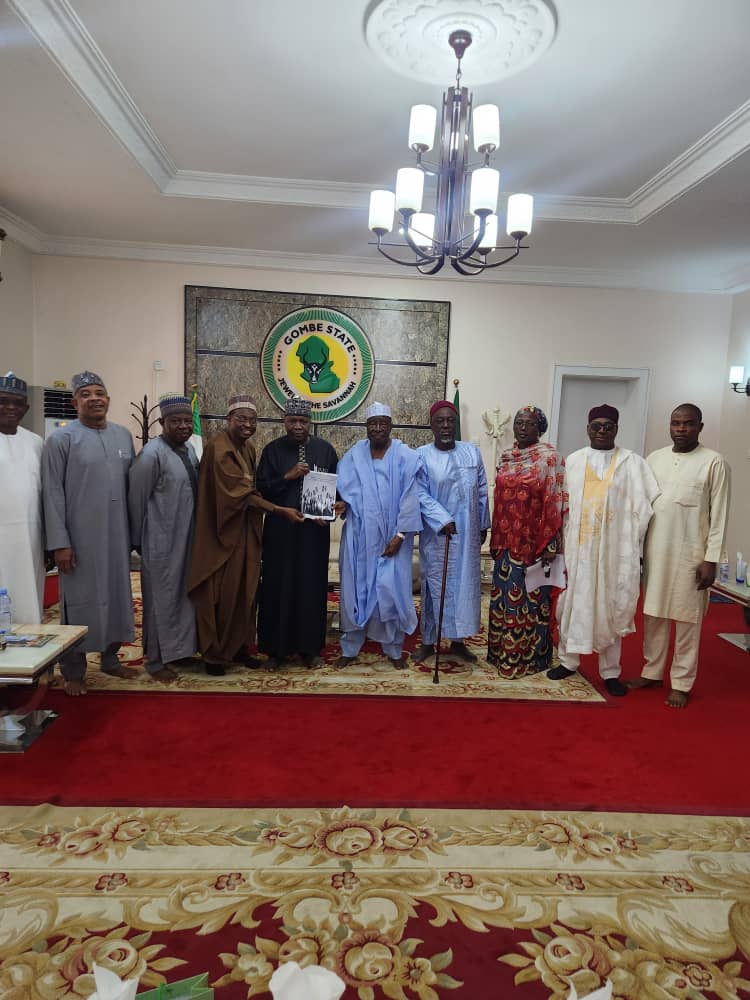The Northern Elders’ Forum (NEF) has urged the Federal Government, led by President Bola Tinubu, to immediately suspend action on the proposed Tax Reform Bills, emphasizing the need for a more inclusive review process.
In a statement issued on Saturday, the NEF argued that delaying the bills would allow for more robust contributions from diverse stakeholders across Nigeria.
The statement, signed by A.M. Al-Amin Daggash, Chairman of the NEF Management Board, outlined recommendations to improve the proposed tax laws.
While acknowledging the broader discussions on tax reform, the group raised concerns about specific provisions in the bills, particularly the exclusion of agricultural products, including livestock, from Value Added Tax (VAT).
The group said livestock is a significant economic activity in northern Nigeria, saying its exclusion could have adverse effects on the region’s economy.
“Northern Elders’ Forum (NEF) has carefully studied the full content and context of the proposed Tax Reform Bills and wishes to share with all Nigerians, through this very important medium, our highly principled and patriotic position,” the statement read.
The NEF criticized attempts to frame the tax reform debate as a North-South issue, asserting that contributions from all six geopolitical zones have enriched the proposed bills. They called for more dialogue to address concerns and redesign the implementation strategy.
The forum therefore made several recommendations, including: “1. That, the Federal Government should immediately suspend the rush to implement the proposed Tax Reform Bills, so as to more wisely use the medium of dialogue to allay all concerns, collect all quality contributions and critical inputs from cross sections of Nigerian stakeholders, and then finally proceed to accommodate and redesign the sequencing of the implementation strategy.
2). That, as a consumption tax which drastically reduces the purchasing power of citizens, fuels inflation and hikes in interest rates, no increase in VAT should be imposed, pending the emergence into the national horizon, of clear evidence of the promised economic recovery by the government.
3). That the proposed formula contained in the NTAB is not fair to the states where VAT revenue is generated, as the consuming states are denied credit for what has been generated from them. Since VAT is a General Consumption Tax (GCT), the rule of attribution based on the location of consumption should be uniformly applied.
4). That, since Section 162(2) of the 1999 Constitution (as amended) grants the RMAFC, the sole authority to determine the formula for equitable revenue sharing among the three tiers of government, no attempt should be made by the ruling authority, to whimsically change this provision, as doing so, is capable of undermining the law of the land and disrespect of democratic principles.
The plan to move the exceedingly performing developmental and technological institutions, with a secured means of sustainability, such as, TETFund, NITDA and NASENI, to the uncertain and hazardous future of budgetary allocation should be halted. We strongly recommend that the status quo should be maintained by the government, so as to strengthen and protect these strategic national institutions.
5). That, given our diversity and the importance the government attaches to promoting financial inclusion, the use of contentious terms like “ecclesiastical,” in the original proposed Tax Reform Bills, should be seamlessly replaced with “religious.”
6). That, religious, charitable organizations and family inheritance wealth, should be exempted from paying all forms of taxes, as this is prone to conflicts over citizens’ strict adherence to some religious obligatory laws.
7). That, conspicuously missing and consciously evaded by the framers of the Tax Reform Bills, is the issue of agricultural goods (produce) and livestock, a big ecosystem, which constitutes the strength of Northern Nigeria’s economy, yet, for certain inexplicable reasons, they have all been declared VAT-exempt/non-VATable. Obviously, the repercussion of this exclusion on the Northern part of Nigeria is glaringly disproportionate. “



